FIDE approves new composition of Management Board
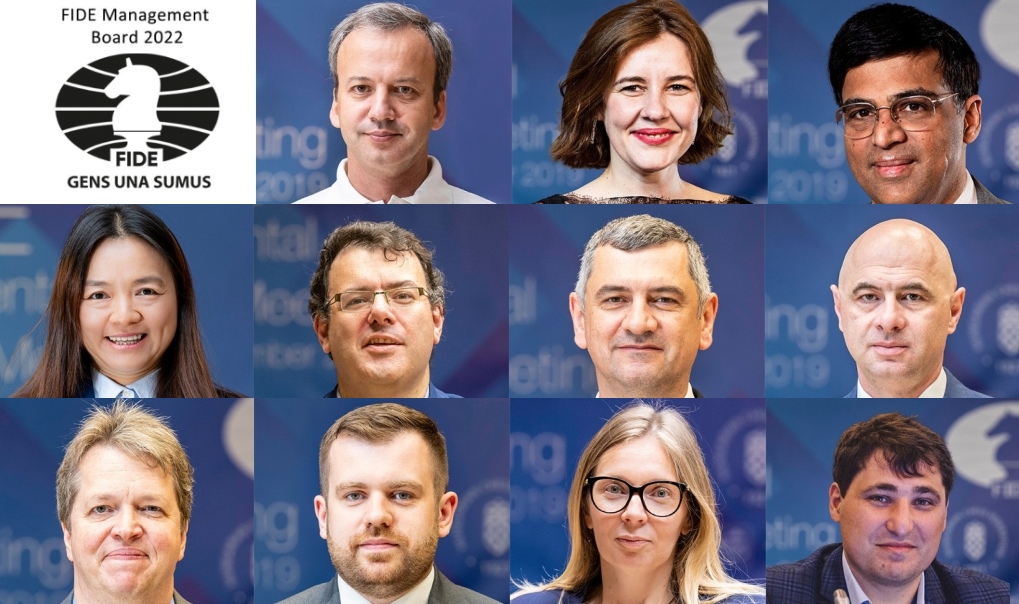
We are pleased to announce the composition of our new Management Board, following the FIDE Council voting approval of the proposal presented by its President, Arkady Dvorkovich. The full list of members and positions will be as follows: Chairman of the Management BoardFIDE President, Mr Arkady Dvorkovich Deputy Chair of the Management BoardMrs Dana Reizniece-Ozola Board Members: FIDE Deputy PresidentMr Viswanathan Anand FIDE TreasurerMrs Zhu Chen FIDE Chief Executive OfficerMr Emil Sutovsky FIDE Executive DirectorMr Victor Bologan FIDE Special Tasks DirectorMr Akaki Iashvili FIDE Director for Chess DevelopmentMr Nigel Short Secretary GeneralLukasz Turlej FIDE Chief Operating OfficerMs. Sava Stoisavljevic FIDE Legal DirectorMr. Aleksandr Martynov
World Sight Day: Chess perspective
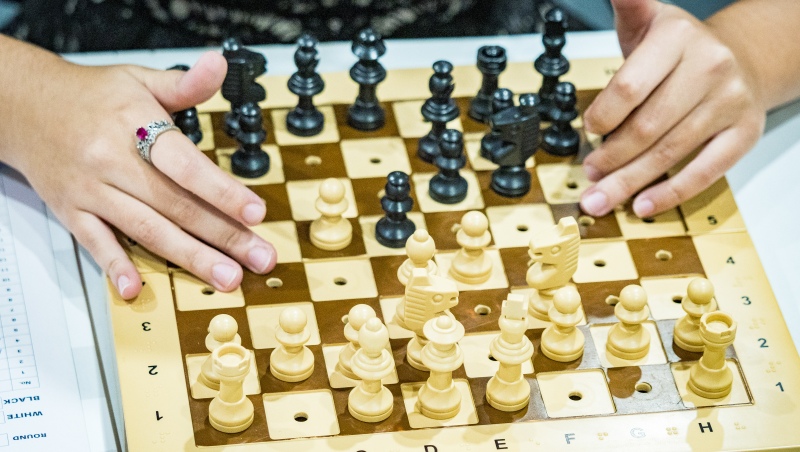
World Sight Day, observed annually on the second Thursday of October, is an international day of awareness to draw attention to global eye health issues, blindness and visual impairment. Chess is a game for everyone and is widely played by visually impaired people. WIM Natasha Morales Santos (pictured below) is the second highest-rated female chess player in Puerto Rico. At the 44th Chess Olympiad in Chennai, she defended the first board of the national women’s team. And she did that playing on her special braille board. From birth, Natasha can’t see with the left eye and has only partial vision in the right. “Earlier, I did not know about the Braille board, so I played on the regular board, but I lost many games because I used to get tired and get constant headaches trying to keep up with opponents on a regular board. I loved chess, but I couldn’t carry on that way. That’s when the Puerto Rican federation helped us find a braille board,” she said in an interview for Sportstar magazine during the Olympiad. Photo: Anna Volkova, Chennai 2022 Braille chess board has special modifications that help visually impaired players. All the black squares are elevated a few millimetres to be easily identified by touch, and each of the squares has a hole in the centre in which pieces are sturdily fixed with the help of nails in their bases. “I don’t have a problem talking about my disability because it’s something I am born with,” says Natasha Morales Santos. “I don’t like it when the only important thing is my disability. Yes, it is a quality I have and an impairment, but it does not describe me as a person or a player.” Natasha Morales Santos and many like her set an example for other players with a similar disability. Another inspiring figure is the reigning women’s world champion among the blind and visually impaired, WIM Lubov Zsiltzova-Lisenko from Ukraine, who scored a whopping 8.5 out of 9 at the latest edition of the championship, held in France. There is a special organization that governs chess for the blind and visually impaired people, International Braille Chess Association (IBCA). It is affiliated with FIDE and regularly holds IBCA world championships. The 2023 IBCA Individual World Chess Championship for Blind and Visually Impaired will take place in Greece.
Shortlist for FIDE Book Awards 2022 announced
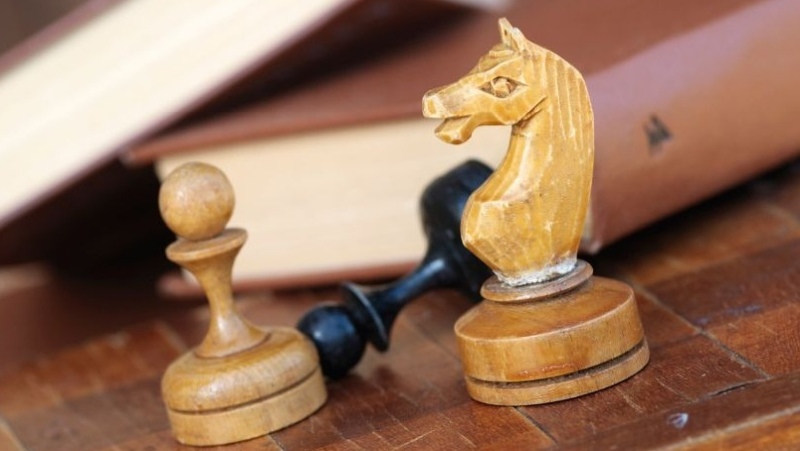
Once again the FIDE Trainers Commission has received an excellent selection of nominations by leading chess publishers for the Yuri Averbakh & Isaac Boleslavsky Book Awards 2022. After long deliberation, the judges have now narrowed their choices to ten books that you will find below: Leading in number this time are Elk & Ruby and Quality Chess, with three nominations each. Elk & Ruby: Masterpieces and Dramas of the Soviet Championships: Volume II (1938-1947) by Sergey Voronkov, Selected Games by Peter Romanovsky and Eight Good Men: The 2020-2021 Candidates Tournament by Dorian Rogozenco. Quality Chess: Magnus Carlsen’s Middlegame Evolution by Ivan Sokolov, Winning by Nigel Short and The Secret Ingredient by Jan Markos and David Navara. Thinkers Publishing is following closely with two books: Miguel Najdorf – ‘El Viejo’ – Life, Games & Stories by Franco Zenon and The Sinquefield Chess Generation – Young Guns at Work! by Alex Colovic. The shortlist also includes Independent’s Forgotten Genius: The Life and Games of Grandmaster Albin Planinc by Georg Mohr and Adrian Mikhalchishin and New In Chess’ How to Study Chess on Your Own by Davorin Kuljasevic. A Knight without a Castle by Robert Katende (Most Inspiring Story – Of Hope and Triumph), Chess & Brain. Art and Science by Adolivio Capece, Razvan Sandru, Stefano Salis, Zachary Mainen (Chess as Art & Science) and Los Colores del Ajedrez (Chess in Education book) deserved a special mention. By the end of the month the panel of judges will deliberate and agree together on the three final awardees, with the winner being announced no later than two weeks after the publication of the shortlist.
FIDE World Junior Chess Championship kicks off in Cala Gonone, Sardinia
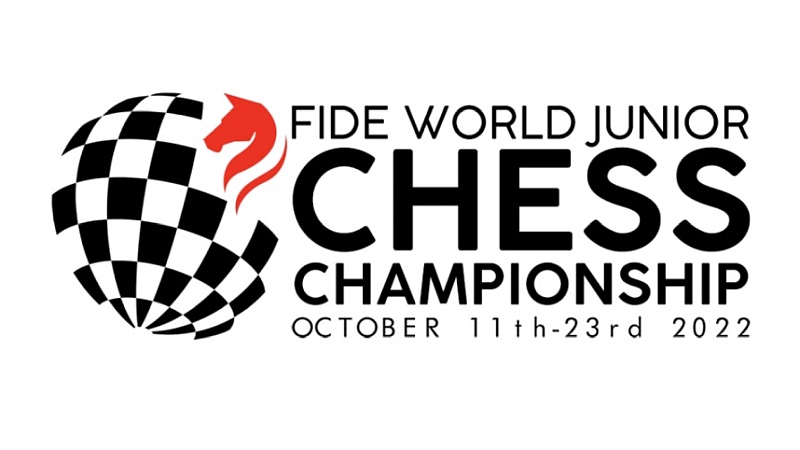
The 2022 edition of the FIDE World Junior Chess Championship started at the Palmasera Resort in Cala Gonone, Sardinia. Both Open and Girls under 20 Championships are 11-round Swiss tournaments with classical time control. The open event brought together 120 participants, including 13 GMs, from 55 countries competing for the most prestigious junior title. Topping the initial rankings is GM Andrey Esipenko, who will surely be in the limelight. In the women’s section, 66 players representing 45 national federations, including four WGMs, are battling for glory, with Bulgaria’s IM Nurgyul Salimova leading the starting list. After the technical meeting in the morning, where the arbiters instructed the heads of delegations and players on the rules and behaviour expected in this major event, the chair of the organizing committee, GM Roberto Mogranzini, welcomed the participants. At the beginning of the opening ceremony, FIDE’s and Italian National anthems were played, followed by the speeches given by Lorenzo Antonelli, Vice President Italian Chess Federation; Danilo Mallò, President of Regional Committee of Sardinia; Bernardino Luigi Carotti, Alderman of the Municipality of Dorgali and Ozgur Solakoglu, FIDE delegate. Lorenzo Antonelli and Ozgur Solakoglu made the first ceremonial moves on board 1 in the open section (GM Andrey Esipenko vs IM Medina Galaviz) and the tournaments took off. The live broadcast with WGM Keti Tsatsalashvili and GM Eugeny Miroshnichenko commentating on the games is available on FIDE’s YouTube channel. Official website: fideworldjunior2022.com
Konstantin Landa (1972-2022)
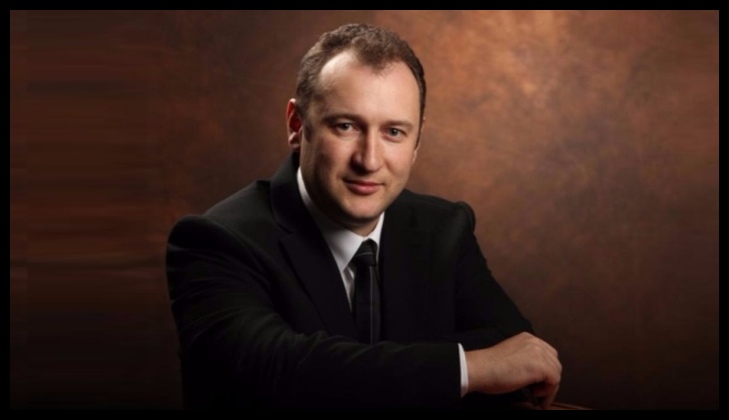
FIDE is deeply saddened to hear of the passing of our colleague Konstantin Landa, at the early age of 50. Konstantin was a much-respected member of the chess community. A strong GM, he was a passionate coach, as well as a member of our Fair-Play Commission. Born in Omsk, he stood out as a very promising talent in his early years, which earned him the opportunity to be trained by Evgeny Sveshnikov and also attend several training camps at the Botvinnik chess school. In one of these camps, he defeated the World Champion Garry Kasparov at the age of 13. He was the junior vice-champion of the USSR in 1989, and he won the Russian junior championship in 1992 after the collapse of the USSR. He became a Grandmaster in 1995. However, having graduated from the University, he took a job in the IT department of a bank, and for several years he juggled his day job with occasional participation in chess tournaments, where he showed his class. After moving to Germany in 1999, he went back to chess as a full-time professional, and in 2007 he reached his peak rating of 2678. Landa became a FIDE Senior Trainer in 2011, and for years he was one of Germany’s leading trainers. He was a long-term coach of Arkadij Naiditsch, but he also played an important role in coaching other top players such as Alexandra Kosteniuk, Evgeny Alekseev, and Daniele Vocaturo. More recently, he worked with Alexandra Goryachkina, and he was his second during the Women Candidates tournament in Kazan, which she won in brilliant style, and the Women’s World Championship match against Ju Wenjun (along with Najer and Rublevsky). He was also a coach for the Iranian national team and the Azerbaijan and Kazakhstan Women’s teams. Konstantin Landa co-authored the book “The Complete Manual of Positional Chess” (2017), which presented a complete set of instructions and tips for trainers and self-improvers. In 2012, he made a comprehensive proposal for anti-cheating measures to the FIDE Trainers Commission, based mainly on his vast experience at team competitions. His proposal was widely supported by the chess community and adopted by FIDE. His strong stance towards fair play, combined with his IT background, made Landa a perfect candidate to be a member of the ACP and FIDE fair-play commissions, where he continued to provide invaluable input. Our thoughts go out to his family, friends, and the many teammates and players he coached over the years. Photo: Konstantin Landa’s personal archive
Chess for Children with ASD: third education seminar conducted
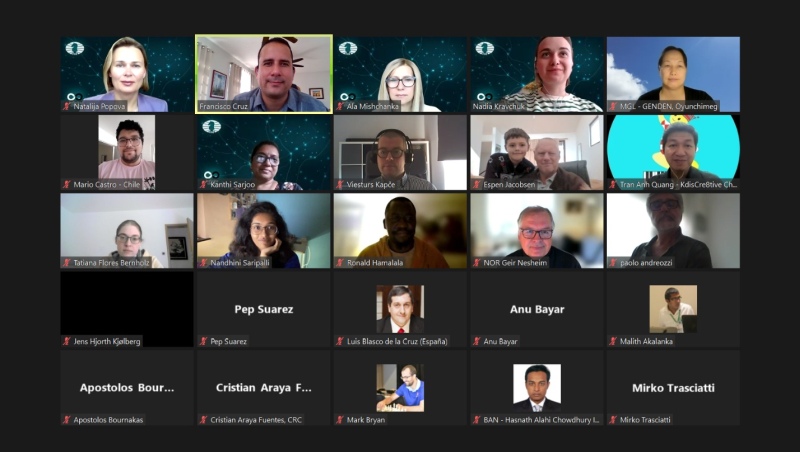
On October 9, 2022, FIDE, together with FIDE Social Commission, held the 3rd FIDE Educational Seminar of Infinite Chess Project, “Chess for children with an autism spectrum disorder. Learn and teach”. This year eight new partner countries joined the project: Australia, New Zealand, Bangladesh, Malaysia, Maldives, Albania, Latvia, and Morocco. First and foremost, the seminar was designed for teachers from these new partner federations. However, the organizers decided to make it open for everyone to enable all teachers or parents working with children with ASD to benefit from it. Dana Reizniece-Ozola, FIDE Managing Director and Anastasia Sorokina, the Infinite Chess Project leader, warmly welcomed the participants from 55 countries. Hosted by the project coordinator Nadia Kravchuk, the seminar brought together teachers and researchers with practical knowledge in the field. Evguenia Charomova, Bachelor of Science, Masters in speech therapy, Speech-Language Therapist (New Zealand), spoke about the strong sides of autism and how to deal with the disorder. Karel van Delft, chess teacher, coach, and Science Project Manager in Chessable science (Netherlands), shared his experience from chess projects for kids with ASD. Ala Mishchanka, a special needs educational assistant with more than 15 years of experience (Canada), spoke about her practical takeaways from teaching kids with ASD. Kanthi Devi Sarjoo, a speech and language therapist at Brown’s School (South Africa), also talked about her experience and the impact of implementing the pilot Infinite Chess project. Natalia Popova, WIM, FIDE Trainer, author of Infinite chess methodology, and the leader of the two-year-long project teaching chess to children with autistic spectrum disorder (FIDE) shared her invaluable experience and knowledge of working with ASD kids and gave a detailed overview of her unique methodological program. This program is suitable for groups of students with ASD, mixed groups, inclusive education, individual lessons, and at-home schooling. It is translated into Russian, English, French and Spanish languages, and we’re proud to share it. Please visit the project website infinitechess.fide.com/ to download the program free of charge. These materials can serve as an excellent practical guide for trainers and parents.
FIDE President visits Paraguay
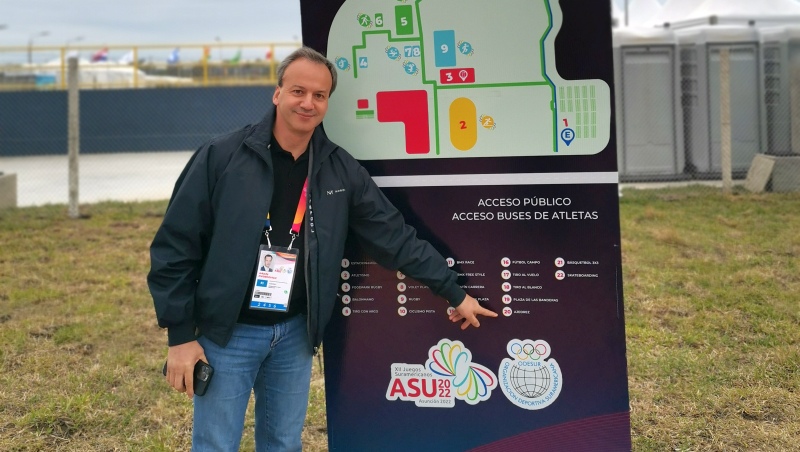
On October 9, President of the International Chess Federation (FIDE), Arkady Dvorkovich, arrived in Paraguay, accompanied by the Executive Director of FIDE, GM Victor Bologan and the Assistant to the President of FIDE, Konstantin Kiselev. After arriving at noon, he went to the Olympic Park, one of the venues for the Asunción 2022 South American Games of the South American Sports Organization (ODESUR), where chess was being played along with other sports. FIDE President watched the games in progress while enjoying the best ODESUR Chess. Between rounds, he mingled with fans, taking photos and signing autographs. Once the official photos with the players, delegates and referees were taken, the President went on to observe the women’s soccer match between Paraguay and Chile, which the local team won 3-1. After making the tour of the facilities – the Velodrome, the field hockey stadium, the BMX Cycling stadium and the Skate stadium – Arkady Dvorkovich had lunch with leaders of the Paraguayan Chess Federation. Later he returned to the Olympic Park for the Chess Olympiads award ceremony and gave the medals to the winners in six categories. They were emotional moments for the local public since the five Paraguay was awarded five medals Paraguay (two gold for Axel Bachmann, one Bronze for Gabriela Vargas and two Bronze for Teams). Once the award ceremony was over, FIDE President had an audience with the President of ODESUR, IOC Member Camilo Pérez. In the said meeting, Mr Dvorkovich thanked the President of ODESUR for the opportunity to be part of Asunción 2022. He praised the rapid development of the game in South America and mentioned that chess would be considered an option to integrate into the official program of the South American Games. The next day the FIDE delegation was received by the President of the Argentine Olympic Committee, Mario Moccia, who is also Vice President of ODESUR. On occasion, they shared views on how to lead the initiative of incorporating chess into the Olympics. Arkady Dvorkovich also visited the CONMEBOL museum, where he got acquainted with the history of South American soccer. During his visit, FIDE President was accompanied by the President of Zone 2.5 of FIDE OI, Ronald Zarza Pelissier and the President of the Paraguayan Chess Federation, Mr Eduardo Benítez.
Turkey triumphs at FIDE World Youth U-16 Chess Olympiad 2022
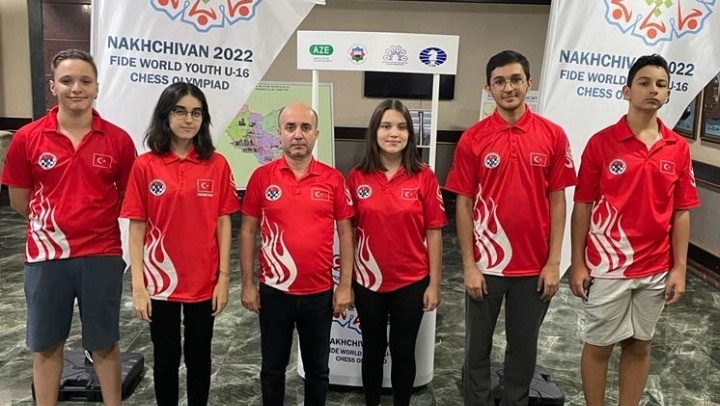
FIDE World Youth U-16 Chess Olympiad 2022 finished in Nakhchivan, Azerbaijan, on October 10. The 9-round Swiss tournament with classical time control brought together 34 teams from 22 countries. The fifth-rated Turkiye-Red swept the field, winning the event with one round to spare. The FM Eray Kilic (2428, board 1) won all the matches. Both FM Hasan Huseyin Celik (2323) and FM Taha Ozkan (2299) had a fantastic event, scoring 8 and 7,5 points, respectively, and showing the best result on Boards 2 and 3. WFM Gulenay Aydin (2109) and Hatice Asli Mustu (1896), on boards four and five, also contributed to the overall success. Uzbekistan-1 claimed silver medals. Led by IM Mukhiddin Madaminov, they won 7 matches, including important victories over India and Kazakhstan, and made one draw with eventual bronze-medalists Azerbaijan-1. Board 2 of the Uzbekistan team, FM Khumoyun Begmuratov, scored an impressive 8 out of 9. Azerbaijan-1 lost two matches and thus could only settle for third place. Apart from losing to Turkey-Red (like any other team), the host nation’s teenagers were also defeated by Kazakhstan. All team members showed balanced performance, while Narmin Abdinova (1810, board 6) stood out with 7 out of 8 – the best performance on board 6. Initially among top-3 rated teams, Iran and India did not have the best event, finishing 6th and 5th, respectively. Nevertheless, the leader of the Indian team, IM Pranav V, showed the best performance on board 1, with a performance rating of 2615. Iran’s board 4, FM Sina Movahed, also won his board’s competition, but this was not enough for the overall team’s success. Kazakhstan, which narrowly missed the podium, can boast of the best Board 5 performance accomplished by CM Sauat Nurgaliyev. Final Standings, top 10 teams: Turkiye-Red – 18 Uzbekistan-1 – 15 Azerbaijan-1 – 13 Kazakhstan – 12 India – 11 Iran – 11 Uzbekistan-2 – 11 Mongolia – 10 Georgia-1 – 10 Azerbaijan-2 – 10 Photos: Turkish Chess Federation (Twitter @TurkishChess), and Youth Olympiad Instagram @wyco2022nakhchivan Official website: youtholympiad.fide.com
Novy Bor and ASVÖ Pamhagen win European Club Cup
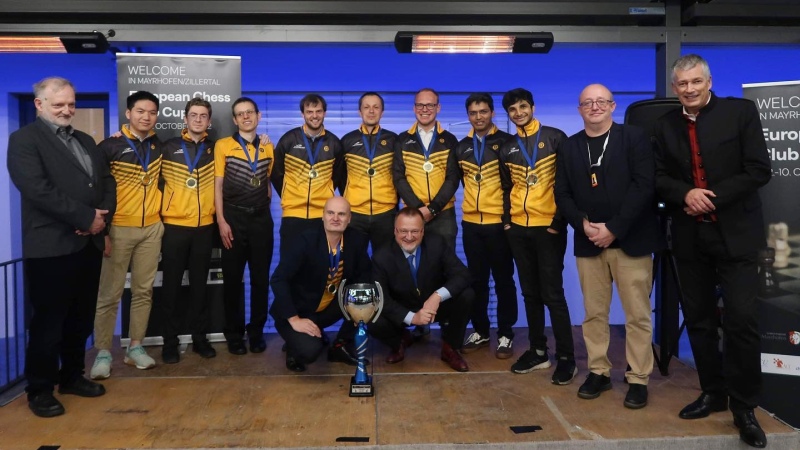
Novy Bor (Czech Republic) emerged as the winner of the European Club Cup, a seven-round team event held in Mayrhofen, Austria, from October 3-9, 2022. The open and women’s competitions ran concurrently. After beating Asnieres Le Grand Echiquier 3½:2½ in the final round, the Czech team secured the long-awaited second title after a nine-year break. Novy Bor put in a dominating performance winning all seven matches. The team leader Pentala Harikrishna laid the foundation for success by defeating Maxime Vachier-Lagrave with white pieces in a popular line of Gruenfeld Defence. On the second board, Vidit stumbled and lost to Esipenko after scoring phenomenal six wins in a row in the previous rounds; boards three to five ended in draws. David Anton Guijarro playing on the sixth board, secured the match victory and title for Novy Bor by beating Matthieu Cornette. Silver and bronze go to Clichy-Echecs-92 (12/14) and Schachclub Viernheim 1934e.V. (11/14). Ironically, the champions and the runner-up team did not face each other in the competition. As many as nine teams tied for third place. Somewhat surprisingly, the rating favourite Romanian team CSU ASE Superbet with Anand and Rapport in the roaster, came only sixth behind Asnieres Le Grand Echiquier and Beer Sheva Chess Club due to inferior Sonneborn-Berger. For this very reason, Offerspill Chess Club, headed by Magnus Carlsen, finished behind them. Final standings: 1 CZE Novy Bor Chess club 14 2 FRA Clichy-Echecs-92 12 3 GER Schachclub Viernheim 1934e.V. 11 4 FRA Asnieres Le Grand Echiquier 10 5 ISR Beer Sheva Chess Club 10 6 ROU CSU ASE Superbet 10 7 NOR Offerspill Chess Club 10 8 SLO TAJFUN – SK Ljubljana 10 9 ISR Kfar Saba Chess Club 10 10 AZE Vugar Gashimov 10 Heading into the final round of the European Women’s Club Cup, the local team ASVÖ Pamhagen was two points ahead of CSU ASE Superbet and Cercle d’Echecs de Monte-Carlo. The team from Burgenland made a 2:2 draw against the Polish team BGK KS Gwiazda Bydgoszcz and secured the title (first ever for an Austrian club), scoring 12/14. On the top board, Elina Danielian suffered defeat at the hands of Alina Kashlinskaya, but Yuliia Osmak retaliated on the third board and equalized for Pamhagen. The game on boards two and four were drawn. The Austrian team owes its success to a very strong showing by Anna Ushenina, Yuliia Osmak (contributing 5/5 each) and Aleksandra Maltsevskaya (5.5/7). CSU ASE Superbet and Cercle d’Echecs de Monte-Carlo won their last-round matches and tied for second place, with the Romanian team taking silver by dint of better tiebreaks. Final standings: 1 AUT ASVOe Pamhagen 12 2 ROU CSU ASE Superbet 11 3 MNC Cercle d’Echecs de Monte-Carlo 11 4 POL BGK KS Gwiazda Bydgoszcz 8 5 AUT SK Erste Bank Baden 8 6 AZE Odlar Yurdu 8 7 SLO TAJFUN – SK Ljubljana 7 8 ENG Wood Green 7 9 UKR Blue & Yellow 7 10 FRA Philidor Mulhouse 7 Photo: Walter Kastner and Fiona Steil-Antoni Official website: eccc2022.at
Missing FIDE President: Investigation by FIDE Historical Committee
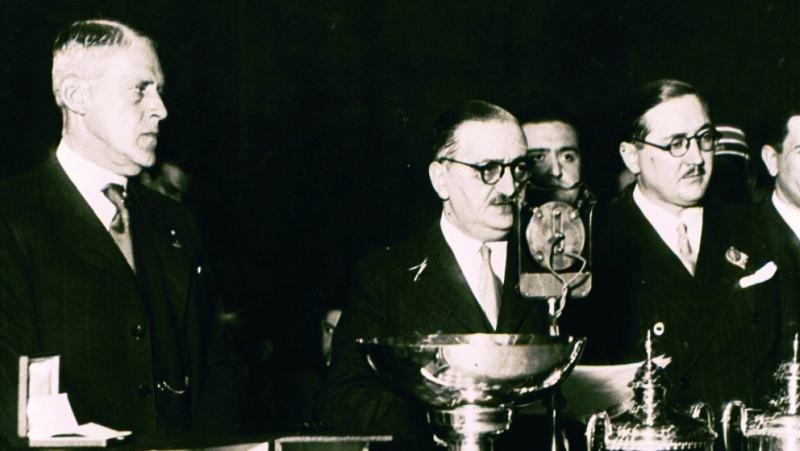
In 1939, the FIDE GA met in Buenos Aire during the Olympiad. Because of the uncertainty regarding a possible World War, Paraguay’s delegate came up with a motion to replace the FIDE President, Dr Rueb, with the President of the Argentina Chess Federation. The motion was accepted by a huge majority of the delegates but never implemented. Eighty-two years later, the President of the Argentina Chess Federation asked FIDE to rewrite history and list Mr De Muro as the second FIDE President. An investigation has been made by the FIDE Historical Committee, which has concluded that according to FIDE Statutes from that time, the FIDE GA had the power to take the decision to replace Dr Rueb. Before taking the final decision, the FIDE Council has asked the FIDE Office to publish all documents concerning the above-mentioned case. If anyone has unpublished documents or has a justified counter-opinion, please contact the FIDE Office at at office@fide.com by January 10, 2023. Here is a full list of related documents: Letter to the FC by Willy Iclicki (docx) Investigation by Sergio Ernesto Negri and Juan Sebastián Morgado (docx) Letter by Herman Hamers (docx) FIDE Statutes 1925 (pdf) General Assembly Agenda 1939 (jpg) Letter to Federations 1939 (jpg) Mario Petrucci FADA President Letter to the FIDE President (pdf) Text Francais (jpg) Torneo Naciones Poster (jpg) XVI Congress Report (jpg) Chapter 34 – September 1939 (jpg) Augusto De Muro – President (jpg) First Session GA 1939 – Spanish (jpg) Olympiad 1939 – Final Stanings (jpg)

